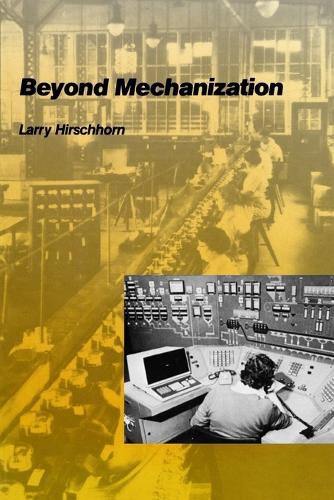Readings Newsletter
Become a Readings Member to make your shopping experience even easier.
Sign in or sign up for free!
You’re not far away from qualifying for FREE standard shipping within Australia
You’ve qualified for FREE standard shipping within Australia
The cart is loading…






Human skill and judgment are needed now more than ever to effectively run today’s complex computerized production systems. In this thought-provoking study of work, worker, and machine in the postindustrial age, Hirschhorn points out that factories will become places of learning where the worker must be able to diagnose and solve an array of problems generated by error-prone machine systems.With numerous examples he shows that the new technology can fail in unexpected ways and that human judgment has become increasingly important. The new technology also blurs the line between managing and working, requiring workers - craftsmen, machine operators, or engineers - to become generalists who will have to deal with unstructured and open-ended problems. Hirschhorn links theory to the shop floor, examining such issues as the role of unions and the economics of the job shop and describes a new type of factory setting where supervisors are teachers and workers are organized into teams paid according to how much they have learned.Larry Hirschhorn is Senior Researcher, Management and Behavioral Science Center, University of Pennsylvania.
$9.00 standard shipping within Australia
FREE standard shipping within Australia for orders over $100.00
Express & International shipping calculated at checkout
Human skill and judgment are needed now more than ever to effectively run today’s complex computerized production systems. In this thought-provoking study of work, worker, and machine in the postindustrial age, Hirschhorn points out that factories will become places of learning where the worker must be able to diagnose and solve an array of problems generated by error-prone machine systems.With numerous examples he shows that the new technology can fail in unexpected ways and that human judgment has become increasingly important. The new technology also blurs the line between managing and working, requiring workers - craftsmen, machine operators, or engineers - to become generalists who will have to deal with unstructured and open-ended problems. Hirschhorn links theory to the shop floor, examining such issues as the role of unions and the economics of the job shop and describes a new type of factory setting where supervisors are teachers and workers are organized into teams paid according to how much they have learned.Larry Hirschhorn is Senior Researcher, Management and Behavioral Science Center, University of Pennsylvania.